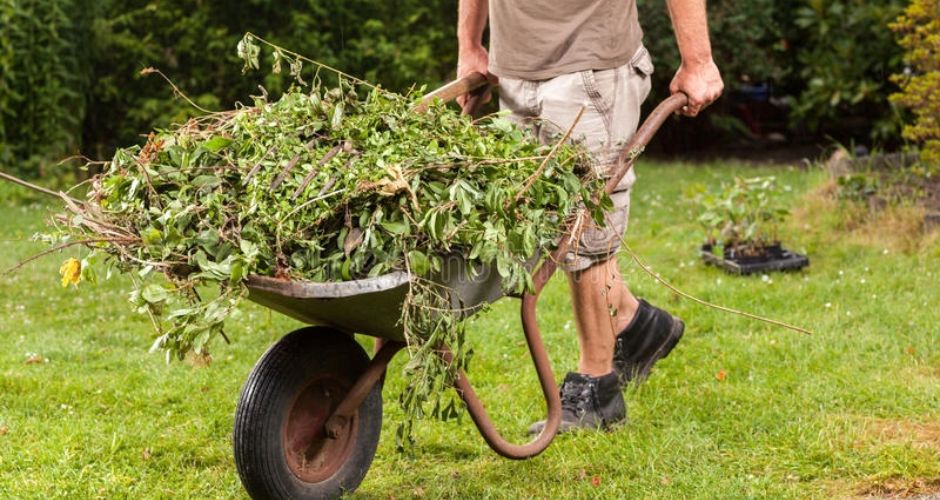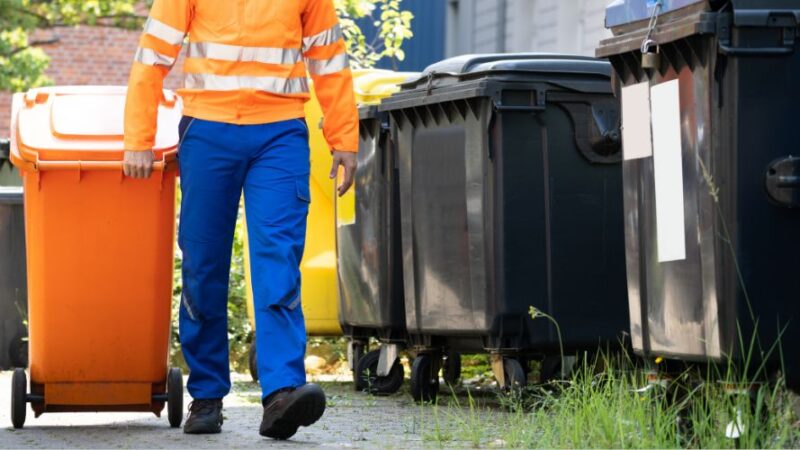Why Garden Rubbish Removal Is Essential for Pest Control

Maintaining a beautiful garden isn’t just about planting flowers and trimming hedges-it’s also about keeping the space clean, healthy, and pest-free. One of the most overlooked yet critical components of garden maintenance is rubbish removal.
Garden rubbish includes fallen leaves, dead branches, grass clippings, old mulch, and discarded plant pots. When these are left to accumulate, they create the perfect environment for pests to breed and thrive.
In this article, we’ll explore why garden rubbish removal is essential for pest control, what types of pests are attracted to unkempt gardens, and how timely clean-up can protect your plants, pets, and home.
Understanding Garden Rubbish
Garden rubbish typically falls into two categories:
- Organic Waste: Leaves, twigs, grass cuttings, dead plants, and compost.
- Inorganic Waste: Broken garden tools, plastic pots, old furniture, and other non-decomposable materials.
While organic waste can break down naturally, the process can take weeks or months-during which time it can become a breeding ground for pests.
How Garden Rubbish Attracts Pests
Let’s break down how accumulated garden waste contributes to pest problems:
1. Shelter for Pests
Overgrown grass, leaf piles, and compost heaps provide the perfect hiding spots for pests like rats, mice, spiders, cockroaches, and ants. These critters seek out dark, moist environments-exactly what uncollected garden waste offers.
2. Breeding Grounds
Stagnant water in pots or old buckets, combined with decaying organic matter, is an ideal place for mosquitoes to breed. Garden rubbish often collects rainwater, which goes unnoticed until mosquito populations explode.
3. Food Sources
Decomposing plant matter feeds various insects such as termites, aphids, beetles, and fungus gnats. Once these pests find a food source, they multiply rapidly and may eventually make their way into your home.
4. Spread of Disease
Many pests carry diseases that can affect humans and pets. For example, rats can spread leptospirosis, while ticks found in tall grass may transmit Lyme disease. Keeping the garden clean significantly reduces these risks.

Benefits of Regular Garden Rubbish Removal for Pest Control
1. Disrupts Pest Habitats
Removing piles of leaves, grass clippings, and other debris eliminates the nesting and breeding areas for pests.
2. Improves Air Circulation and Sunlight Penetration
Clearing rubbish allows better airflow and light, which naturally reduces mold, fungi, and bacteria-making the environment less attractive to pests.
3. Reduces Risk of Pest Infestation in Your Home
Once pests find shelter in your garden, it’s only a matter of time before they invade your home. Clean outdoor spaces act as a first line of defense.
4. Promotes Healthy Plant Growth
A clean garden means fewer pests and diseases, which translates to healthier plants, better yields (if you grow food), and fewer losses.
Common Pests Attracted by Garden Rubbish
| Pest | Attracted By | Potential Damage |
| Mosquitoes | Stagnant water in waste | Disease transmission (Dengue, Malaria) |
| Rats & Mice | Overgrown plants, food waste | Gnawing damage, contamination |
| Termites | Wood piles, dead trees | Structural damage to home & garden beds |
| Cockroaches | Decaying organic material | Spread of bacteria, unpleasant odor |
| Ants | Food sources in rubbish | Nesting in walls, food contamination |
| Aphids | Decomposing leaves/plants | Plant damage, spread of plant diseases |
How to Remove Garden Rubbish Effectively
1. Regular Clean-Ups
Schedule weekly or bi-weekly clean-ups during peak gardening months. Use a rake, blower, or leaf vacuum to keep spaces clean.
2. Compost Smartly
If composting, keep bins sealed and turned regularly to discourage pests from nesting.
3. Dispose of Large Waste Properly
Avoid letting branches, tree stumps, or wooden debris linger. Hire garden rubbish removal services for bulky or hazardous waste.
4. Control Water Accumulation
Check for water collected in pots, trays, and containers. Empty them to eliminate mosquito breeding spots.
5. Prune and Trim
Keep shrubs, hedges, and grasses trimmed to reduce shelter for pests.
Professional Garden Rubbish Removal Services: Are They Worth It?
Yes-especially if:
- You have a large property or frequent storms that cause heavy debris.
- You notice recurring pest issues.
- You lack time or tools to manage regular clean-ups.
Professionals offer:
- Safe and eco-friendly waste disposal
- Speedy cleanup
- Pest risk assessments
FAQs
Q1. Can garden waste really attract rats and mice?
Yes. Piles of leaves, compost, and especially food waste create ideal conditions for rodents to build nests and find food.
Q2. How often should I clean my garden to keep pests away?
A general recommendation is every 1–2 weeks, but it may depend on the season, weather, and your garden size.
Q3. What is the best way to dispose of garden waste?
The best methods include:
- Composting (sealed and well-managed)
- Using municipal green waste services
- Hiring garden rubbish removal experts
Q4. Is mulching harmful if I want to avoid pests?
No, mulching is beneficial if done correctly. Avoid piling mulch too close to plant bases or using decomposing wood that attracts termites.
Q5. Can I use pesticides instead of removing rubbish?
Relying solely on pesticides is not effective long-term. Pesticides may kill pests temporarily but won’t stop them from returning unless the environment (i.e., rubbish) is removed.
Q6. What types of garden rubbish attract mosquitoes?
Standing water in containers, tarps, broken pots, or clogged drains is a major attraction for mosquitoes.
Final Thoughts
A clean garden is more than just aesthetically pleasing-it’s a critical part of pest prevention. By removing rubbish regularly, you reduce the chances of pest infestations, disease transmission, and plant damage. Whether you manage the task yourself or hire professionals, consistent garden waste removal is an investment in your home’s health and safety.
Related Articles:



